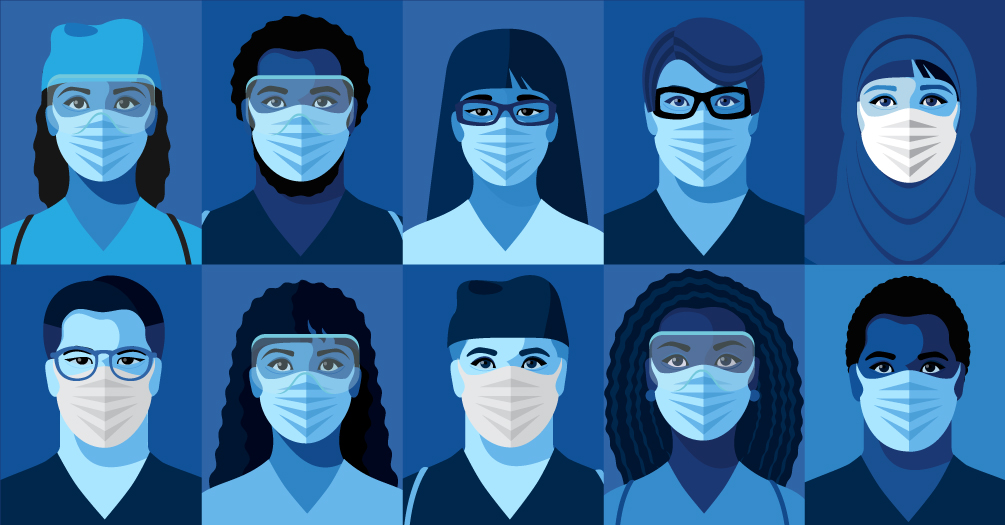
Ahead of the Curve: Amir Dan Rubin
Dean F. DuBois Bowman sits down with Amir Dan Rubin for a discussion on leadership, the importance of continuous learning, and the future of healthcare.
Applications are open for fall 2026!
Apply Today
Dean F. DuBois Bowman sits down with Amir Dan Rubin for a discussion on leadership, the importance of continuous learning, and the future of healthcare.

For thousands of health care workers around the world, dealing with the COVID-19 pandemic has been non-stop for two years and counting. From dealing with illness themselves, to experiencing burnout, or even leaving the field altogether, we want to understand the toll on our health care workforce. In this episode, we'll explore the ripple effects of COVID's impact for these workers, and what potential solutions exist.

Effective change takes effective changemakers. Today, we talk to a few changemakers who are dedicated to improving diversity in public health and healthcare leadership. Research has long shown that the most effective way to improve health for any community is to have public health leaders from that community involved in the day-to-day decision making around the care of that population. Pipeline programs, like the University of Michigan’s Summer Enrichment Program, create avenues for students from underrepresented communities to be exposed to careers in public health, healthcare management, and policy-making. Increasing diversity in public health is both a macro mission, taken on by universities and programs around the country, as well as an individual one, best exemplified by committed mentors who do what they can to support their students.

In this episode of Population Healthy Season 3: Race, Inequity, and Closing the Health Gap, we talk with experts about how inequities occur in health care settings and how who you are can impact your quality of care. Research has found that people of color may not only have less access to health care, but that the quality of care they do receive may also be lesser, and they may even face discrimination from providers. All of these factors can lead to dangerous outcomes such as a reluctance to seek care, delayed treatment, or even misdiagnoses.